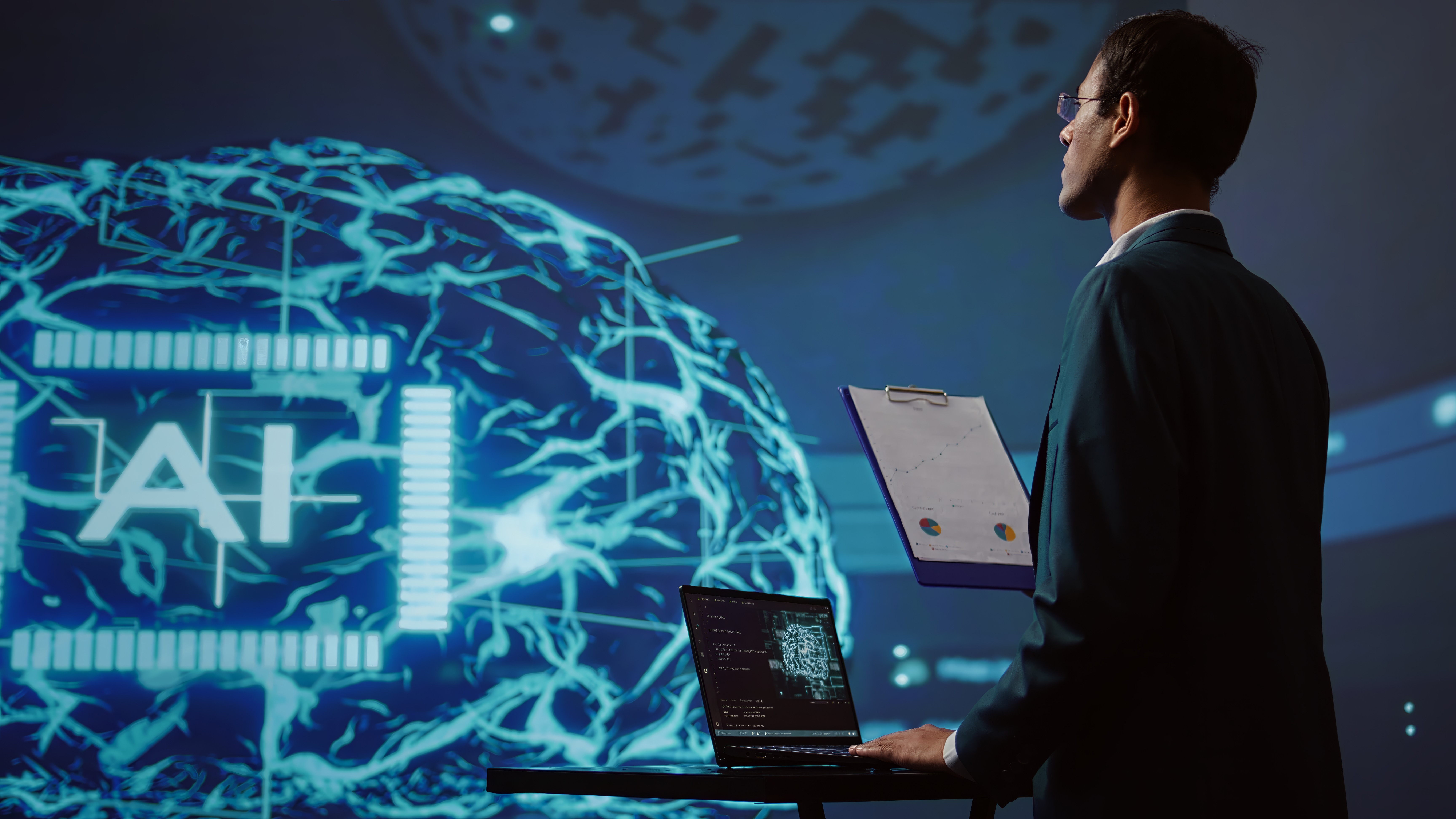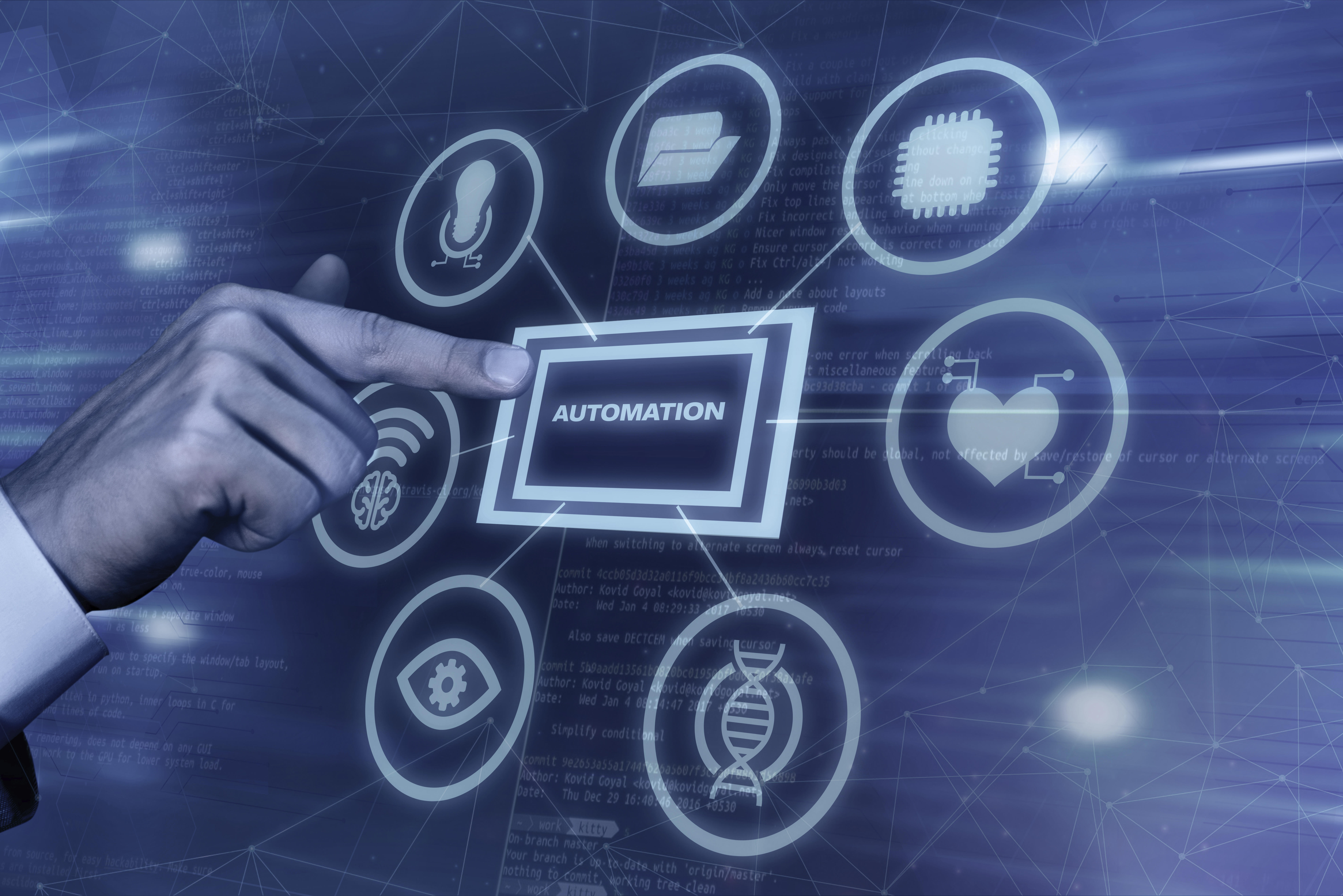Continuing Education for Teachers: Your Guide to AI Courses that Make a Difference
Why Does Continuing Education for Teachers Matter in the Age of AI?
Teaching has evolved far beyond delivering information from a chalkboard or textbook. In the 21st century, educators are expected to stay current with new technologies, adapt to changing student needs, and foster digital literacy. This requires a mind-set of continuous growth, not just for the benefit of students but also for professional development.
Lifelong learning empowers teachers to remain effective and relevant in a world where change is constant. Whether it’s adopting new teaching strategies, exploring educational apps, or understanding how data shapes student outcomes, teachers who continue learning are better equipped to handle modern classroom challenges.
The Rise of AI in Education
Artificial intelligence is already making a significant impact in classrooms around the globe. From personalized learning platforms to AI-assisted grading tools, automation and machine learning are helping teachers manage tasks more efficiently while offering students customized learning experiences. Virtual tutors, intelligent content curation, and predictive analytics are no longer futuristic ideas—they're real tools being used in schools today. As AI becomes more integrated into education, teachers must understand how it works and how to use it responsibly.
Why Does Upskilling in AI Make Sense for Teachers?
Educators who understand the basics of AI can not only improve their teaching but also become valuable mentors in guiding students through a tech-driven world. Learning how to integrate AI tools into lesson planning, assessments, and classroom management can save time and boost engagement. It also opens up new career opportunities, including roles in educational leadership, curriculum design, or tech integration. That’s where continuing education for teachers comes in it provides a structured and accessible path to develop these in-demand skills while keeping up with the future of learning.
By embracing innovation and upskilling in AI, teachers not only future-proof their careers but also ensure they are giving their students the best possible education in an AI-powered world.
What is Continuing Education for Teachers?
Professional development for teachers refers to structured learning opportunities designed to help educators grow professionally after they’ve entered the workforce. It allows teachers to build new skills, deepen subject knowledge, stay up to date with teaching practices, and integrate new technologies like artificial intelligence into their classrooms. This ongoing learning process is essential in an ever-evolving educational landscape, where innovation and change are constant. The purpose of continuing education is not just to meet certification or licensing requirements, but to empower teachers to adapt, inspire, and lead in both traditional and modern learning environments.
Types of Continuing Education Available
There are several flexible formats for continuing education that cater to the diverse needs of teachers:
In-person workshops and seminars: These are traditional sessions often hosted by schools, universities, or educational conferences. They allow face-to-face networking and hands-on learning.
Online courses and webinars: Ideal for busy educators, online learning platforms offer self-paced or live sessions on a wide range of topics especially emerging fields like AI in education.
Certification programs: These are structured, multi-week programs that provide credentials in areas such as educational leadership, classroom technology, or subject-specific expertise.
Each format offers unique benefits, and many teachers choose a mix based on their goals, availability, and preferred learning styles.
How it Differs from Traditional Professional Development?
While both professional development and continuing education aim to enhance teaching effectiveness, they differ in scope and flexibility. Traditional professional development is often school-mandated, limited in duration, and focused on immediate institutional needs. Continuing education, on the other hand, is more teacher-driven, goal-oriented, and personalized. It encourages educators to take ownership of their learning journey whether they’re exploring AI integration, mastering new tools, or expanding into leadership roles.
How AI is Transforming Classrooms and Why Teachers Need to Keep Up?
Artificial intelligence is no longer just a futuristic concept it’s already shaping how educators teach and students learn. In many classrooms, teachers are using AI tools to automate repetitive tasks like grading quizzes, generating reports, and tracking student progress. AI-powered platforms such as adaptive learning apps can analyse student performance and tailor lesson plans to match individual learning styles, helping students learn at their own pace. Virtual teaching assistants and AI chatbots are also being used to answer student questions outside class hours, offering extra support without adding to a teacher’s workload.
From Traditional to Tech-Enhanced Teaching
The traditional classroom model chalkboards, fixed lesson plans, and a one-size-fits-all approach—is quickly being replaced by dynamic, tech-enhanced learning environments. AI enables real-time feedback, interactive simulations, and customized content delivery. Instead of being limited to textbooks, students can now explore topics through AI-curated videos, activities, and quizzes that adapt to their needs. For teachers, this transformation offers more time to focus on mentoring and creative instruction, while AI handles much of the administrative burden.
The Urgency of Staying Digitally Skilled
As AI tools become more integrated into schools, the need for digital literacy among educators is more urgent than ever. Teachers who aren’t familiar with these technologies risk falling behind not just in terms of teaching effectiveness, but also in career advancement. Students are already digital natives, and they expect learning experiences that reflect the tech-savvy world they live in. Without upskilling, teachers may struggle to stay relevant in classrooms that are quickly becoming more data-driven and AI-supported.
Keeping up with AI isn’t about replacing teachers it’s about empowering them. With the right training and tools, teachers can harness AI to enhance learning, increase engagement, and prepare students for a future where technology and human intelligence go hand in hand.
What are the Benefits of AI-Focused Continuing Education for Teachers?
Artificial intelligence is changing the way lessons are delivered and knowledge is absorbed. When teachers learn how to use AI tools effectively, they can better assess student needs, customize learning paths, and make data-driven decisions in the classroom. AI can provide instant feedback, analyse learning gaps, and even suggest resources, enabling teachers to support students more precisely and efficiently. This results in more focused instruction and improved student outcomes.
Saving Time with Automation Tools
One of the most immediate benefits of incorporating AI into teaching is the time it saves. Tasks like grading assignments, organizing schedules, and tracking student performance can be automated using AI-powered platforms. This allows teachers to shift their attention from administrative duties to what truly matters engaging with students, planning creative lessons, and fostering a supportive learning environment. Time-saving tools also reduce burnout and increase overall job satisfaction.
Engaging Students with AI-Powered Learning
AI can make learning more interactive and personalized. Tools like intelligent tutoring systems, virtual labs, and gamified learning apps allow students to engage with content in a way that suits their individual learning styles. Teachers who are trained in using these technologies can create lessons that are not only informative but also fun and immersive. This leads to higher student motivation and better retention of knowledge.
Career Growth and New Opportunities
AI-focused skills are becoming increasingly valuable in the education sector. Teachers who pursue continuing education for teachers with an emphasis on AI can unlock new career paths, such as curriculum design, edtech consulting, or roles in educational innovation. These educators are seen as forward-thinking leaders who can bring tech integration strategies to life. Ultimately, learning AI isn’t just about staying current it’s about stepping into the future of education with confidence.
How Can Teachers Begin their AI Continuing Education Journey?
The first step in beginning your AI education journey is to identify what you hope to achieve. Are you interested in improving classroom management, enhancing student engagement, or automating administrative tasks? For teachers, AI can be applied in various ways, such as personalizing lesson plans, using AI-powered grading tools, or understanding educational data more deeply. By defining clear goals, you can tailor your learning experience to address your specific needs and make the most of available resources.
Choose the Right Course and Platform
Once you've set your goals, it’s time to choose the right course. AI education ranges from beginner courses focused on basic concepts to more advanced options exploring the integration of AI in the classroom. For teachers just starting, a beginner course that covers foundational AI concepts might be ideal. You’ll find many online platforms, including LAI (Learn Artificial Intelligence), offering courses specifically designed for educators. Look for courses that offer practical examples, as well as interactive content, so you can apply what you learn in your classroom right away.
Apply your Learning and Adapt
One of the key benefits of AI education is that it allows you to implement what you learn directly in your classroom. Start small by using AI tools for grading, feedback, or even creating personalized learning experiences for your students. As you grow more comfortable, you can explore more advanced tools and strategies. This hands-on approach ensures that you’re not just passively learning, but actively enhancing your teaching practices. By experimenting with new AI techniques, you’ll gain confidence and insights into how AI can improve both teaching efficiency and student outcomes.
Stay Updated and Continue Learning
AI is an ever-evolving field, and staying updated is essential. The education technology landscape changes rapidly, so continuous learning is crucial. Join online forums, attend webinars, and subscribe to newsletters related to AI in education. By keeping your skills fresh and current, you ensure that you remain an effective and forward-thinking educator, ready to adapt to new tools and strategies as they emerge.
What are the Top Recommended AI Courses for Teachers (Online and Flexible)?
For teachers just starting their journey with AI, it’s essential to choose courses that provide a solid foundation while being easy to follow. LAI (Learn Artificial Intelligence) offers a range of beginner-friendly courses specifically designed for educators. These courses focus on the fundamentals of AI and how to apply them in the classroom, making them perfect for those new to technology.
Course Summaries: What Each Course Offers
Introduction to AI for Educators: This course covers basic AI concepts such as machine learning, natural language processing, and data analytics. It’s designed to help teachers understand the role of AI in education, how to use it effectively in the classroom, and the ethical considerations involved.
AI Tools for Classroom Management: Learn how AI can help automate administrative tasks, from grading to scheduling. This course demonstrates the practical applications of AI in reducing teachers’ workload, allowing them to focus more on teaching.
Personalized Learning with AI: Discover how to use AI to create personalized learning experiences for students. This course explains how AI can adapt content to individual needs, ensuring that each student progresses at their own pace.
Duration, Format, and Outcomes
These AI courses are designed to be flexible and manageable for teachers. Most courses can be completed in 4-6 weeks, with weekly lessons and activities that can be done at your own pace. The format is entirely online, featuring video lectures, interactive assignments, and discussion forums to enhance learning. By the end of the course, you’ll gain practical knowledge of AI applications and be able to apply them directly in your classroom.
Certification and Recognition
Upon completion, teachers will receive certification in recognition of their new skills. This certification is an excellent addition to your professional development portfolio and serves as proof of your commitment to continuous growth. As continuing education for teachers becomes increasingly vital, such credentials will help you stay competitive and knowledgeable in the evolving educational landscape.
How Can Teachers Earn Credits and Certificates in AI Continuing Education?
Professional development for teachers is often tracked through CPD (Continuing Professional Development) or CEU (Continuing Education Units) credits. These credits serve as official recognition of your ongoing learning and professional growth. For AI courses, earning CPD or CEU credits ensures that your participation in an educational program is acknowledged by your school, district, or licensing body. These credits help you meet licensing or certification requirements while enhancing your skill set. Depending on the course, the number of credits earned may vary, with more in-depth courses offering higher credit values.
How to Get Certified in AI Teaching Tools?
Certification in AI-focused teaching tools is a great way to demonstrate your expertise in applying technology effectively in the classroom. Many online platforms, including LAI (Learn Artificial Intelligence), offer AI certification programs tailored for educators. These programs usually provide comprehensive training on AI concepts, practical classroom applications, and tools that support personalized learning, grading automation, and classroom management. By completing a certified program, you gain not only a certificate but also the knowledge and skills to integrate AI tools into your teaching. These certifications are recognized by educational institutions and can be valuable assets in your professional portfolio.
How these Certifications Help your Career?
Obtaining AI certifications can significantly enhance your career prospects. As education increasingly incorporates technology, having AI expertise sets you apart from other teachers. These certifications open up new career opportunities, such as roles in educational leadership, curriculum development, or educational technology integration. Furthermore, they demonstrate your commitment to staying current in a rapidly changing field, showcasing your adaptability and willingness to invest in your growth. AI certifications also serve as a valuable proof of your ability to manage and implement cutting-edge tools, which can be instrumental in advancing your teaching career.
How Can Teachers Overcome Challenges in AI Continuing Education?
One of the biggest challenges teachers face when pursuing continuing education is time management. Between lesson planning, grading, and classroom duties, finding time for AI courses can be daunting. To overcome this, create a realistic learning schedule. Set aside specific times during the week for your studies whether it's 30 minutes before school or an hour after your teaching day ends. Breaking down the course material into smaller, manageable chunks can make it easier to absorb without overwhelming yourself. Flexibility is key; many online AI courses allow you to learn at your own pace, so you can adjust your schedule as needed.
Budget-Friendly Options
AI education can seem expensive, but there are plenty of budget-friendly options available. Many online platforms offer affordable or even free courses designed for teachers, with some offering scholarships or discounts for educators. Platforms like LAI (Learn Artificial Intelligence) provide cost-effective programs tailored for educators’ schedules and budgets. Additionally, some schools or districts may offer financial support or reimbursements for professional development courses. Don't forget to explore community resources, such as public libraries or teacher networks, which sometimes offer free webinars or workshops on AI in education.
Tech Fear and How to Tackle It
Many teachers may feel intimidated by the idea of integrating AI into their teaching practices, especially if they aren’t comfortable with technology. Overcoming this "tech fear" is crucial to embracing AI education. Start by focusing on user-friendly AI tools that require little technical knowledge and build your confidence from there. Engage with online forums, social media groups, or peer networks where other teachers share their experiences. It’s important to remember that AI is a tool designed to help teachers, not replace them, and there are plenty of resources available to help you ease into this new field. With practice and support, you’ll soon find yourself comfortable using AI to enhance your teaching.
Conclusion
It’s time to take the first step toward transforming your teaching with AI. Don’t wait—begin your learning journey today and unlock the potential of AI to improve your classroom experience. The world of education is evolving, and teachers who embrace technology will be at the forefront of this change.
To make your learning journey effective, start small and stay consistent. Set aside regular time for your studies and engage with interactive tools and communities for support. Remember, the more you practice, the more confident you'll become.
Explore the continuing education for teachers opportunities available in LAI’s AI course catalogue, where you can find courses designed specifically to help you grow in your teaching career.








